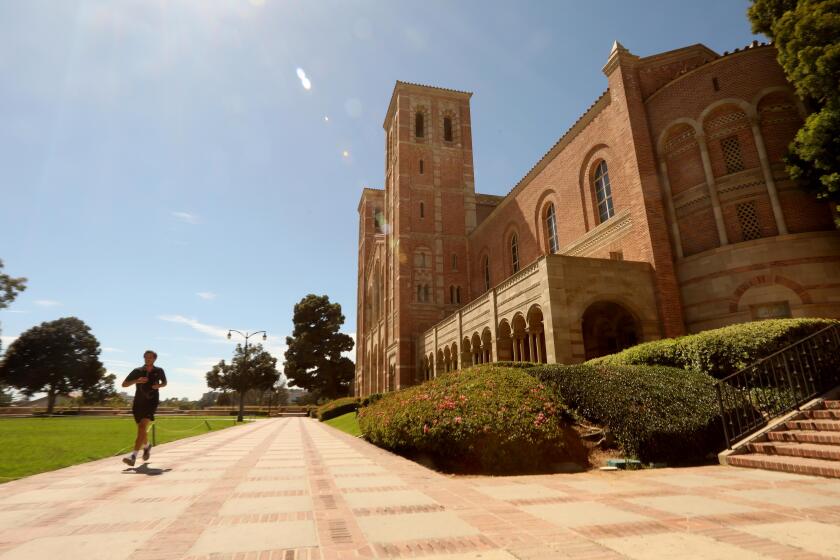Capitol Journal: Lawmakers do warm-ups, but the game is far off
in sacramento â Hundreds of bills flew from one legislative house to the other last week in an exercise much like batting practice.
Or like golfers taking swings on a driving range. Or two tennis competitors stroking balls back and forth before their match.
Lots of commotion, but little that was particularly meaningful. That wonât come for most of these bills until at least August or September, and maybe not until the two-year legislative session adjourns around Labor Day in 2016.
At this stage of the legislative game, many lawmakers are just casting courtesy votes, going along to get along, to paraphrase the legendary U.S. House Speaker Sam Rayburn. Why tick off colleagues so soon by killing their bills? Better to curry favor.
Also, all lawmakers reserve the right to change their mind. And the bills definitely will change in the other house. Then theyâll be returned to be voted on again. Some votes will be bartered as trading chips.
Last weekâs flurry of activity was about meeting the June 5 deadline for bills to pass their house of origin.
Many will die in the other house. And they should.
For me, one prime candidate for burial is SB 151, by Sen. Ed Hernandez (D-West Covina), which would raise the legal age to buy cigarettes from 18 to 21. Yes, wouldnât that be nice. But letâs get real. We canât even enforce the age 18 limit. Kids somehow get smokes at 14 or whenever they want.
Government shouldnât waste time enacting laws that havenât got half a chance of being effective.
Another bill that should perish, unless substantially beefed up, is AB 575 by Assemblyman Patrick OâDonnell (D-Long Beach). Its goal is worthy: To strengthen teacher evaluations. But I challenge anyone to explain how this bill would do that.
Its driving force is union jitters over a Los Angeles judgeâs throwing out teacher seniority protections. The ruling is under appeal. The Democratic-controlled Legislature politically cannot change tenure or dismissal laws much, but it can wave the flag for teacher quality. So wave it with meaning.
Many measures, however, should live on, including:
⢠The assisted-suicide bill, SB 128, by Sens. Lois Wolk (D-Davis) and Bill Monning (D-Carmel). It would allow Californians with less than six months to live to end their lives by taking lethal drugs. Thereâd be lots of hurdles to guard against abuse.
This measure prompted the most emotional debate of the week. There was lengthy argument about whatâs moral and whatâs compassionate.
âAny death that is not a natural death,â said Sen. Jeff Stone (R-Temecula), âis a sin.â
âIf itâs the will of a patient to lessen suffering [and] voluntarily end life in peace,â said Wolk, âis it our right to say you canât?â
It shouldnât be. Everybody should follow their own faith, but donât force yours on me.
⢠Regulation of medical marijuana. Finally.
It has been nearly two decades since Californians passed a ballot initiative to permit smoking pot to kill pain. Regulations were promised and never delivered. Medicinal weed is out of control.
Each house passed a separate bill, SB 643 and AB 266. Basically, the legislation would create a new state office to regulate how marijuana is grown and sold. Businesses would be licensed. Local governments would have enforcement powers and could create marijuana sales taxes.
Several legislators are authors. Assembly Speaker Toni Atkins (D-San Diego) is insisting they compromise so, this time, something gets done.
⢠Providing healthcare for many immigrants here illegally.
SB 4, by Sen. Ricardo Lara (D-Bell Gardens), is significantly scaled down from its original version. It now would permit roughly 240,000 minors to sign up for Medi-Cal â government healthcare for the poor â and allow access to a separate program for some low-income adults.
Republican Sen. Andy Vidak (R-Hanford), whose district is home for many immigrant farmworkers, said it best: âTaxpayers already are paying high healthcare costs for the undocumented when they show up in our emergency rooms.â
Then there are bills that should be very closely studied and altered, even if they are politically trendy for ruling Democrats. They include:
⢠Escalating the war on climate change.
SB 350, by Senate leader Kevin de LeĂłn (D-Los Angeles), would require us, by 2030, to generate half our energy from renewable sources, cut gasoline use in half and double the energy efficiency of older buildings.
De LeĂłn called those mandates âreasonable and achievable.â
Senate Republican Leader Bob Huff of San Dimas countered that the goal is âvery lofty and nobleâ but added: âOther than [us] feeling good about it, what does it accomplish?â unless other states and nations follow our lead.
And thereâs little sign of that.
⢠Raising the state minimum wage. Again.
SB 3, by Sen. Mark Leno (D-San Francisco) would boost the $9 minimum to $11 an hour next January and to $13 in 2017.
Most Democrats contended thatâs fair and would stimulate the economy. Republicans argued it would reduce jobs because small businesses couldnât afford the wage hikes.
Seems to me it also could inch up consumer prices â inflation â and squeeze the elderly on fixed incomes.
A better plan for the working poor is Gov. Jerry Brownâs proposal to enact Californiaâs first earned-income tax credit for the lowest wage-earners.
All these bills will heat up in late summer. And next time it wonât be batting practice.
Twitter: @LATimesSkelton
More to Read
Sign up for Essential California
The most important California stories and recommendations in your inbox every morning.
You may occasionally receive promotional content from the Los Angeles Times.











